Imagine waking up to the gentle sway of water, surrounded by breathtaking limestone karsts or lush river landscapes. Vietnam’s floating eco bungalows offer travelers a unique and sustainable way to experience the country’s natural beauty while minimizing environmental impact.
From the emerald waters of Ha Long Bay to the peaceful rivers of the Mekong Delta, these eco-friendly floating accommodations provide a tranquil escape while actively supporting conservation efforts. By booking a stay in one of these bungalows, you’re directly contributing to plastic waste cleanups, marine conservation projects, and sustainable tourism in Vietnam.
Whether you’re looking for a luxurious floating retreat or a budget-friendly water bungalow, this guide highlights Vietnam’s most sustainable floating eco stays and how they make a difference for the environment.
Why Stay in a Floating Eco Bungalow?
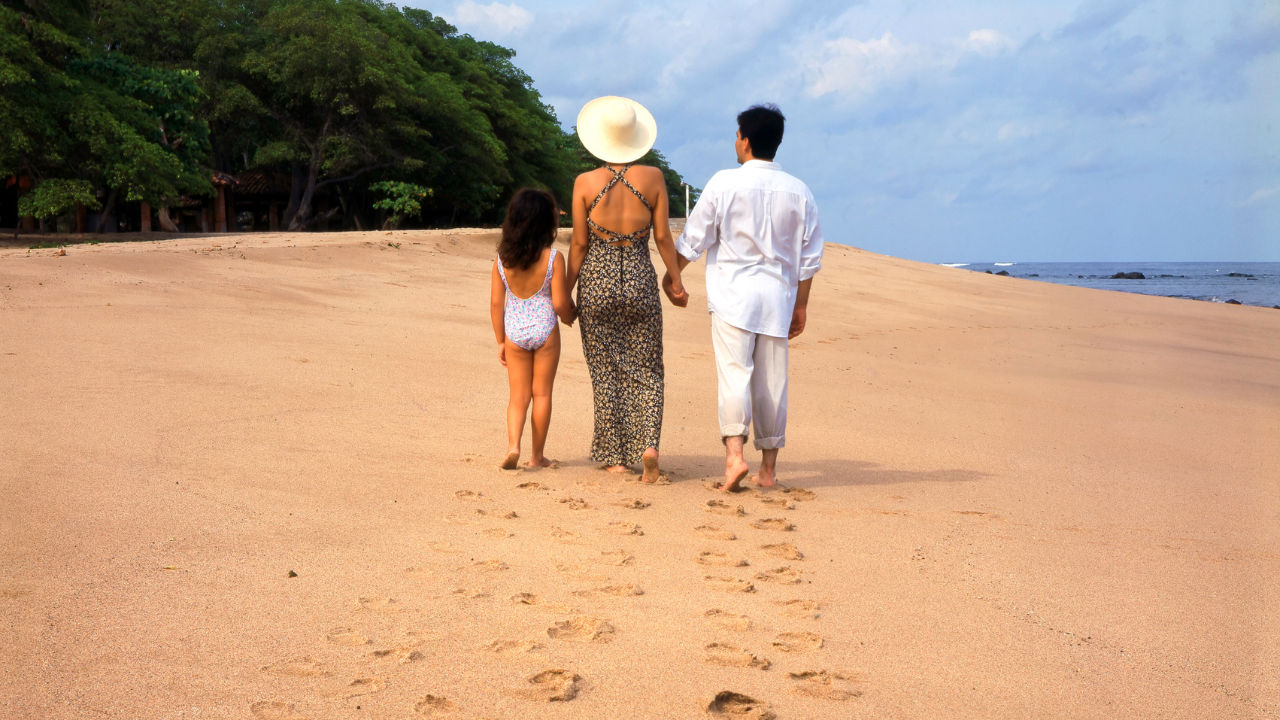
1. A Minimal Footprint on Nature
Unlike traditional hotels, floating bungalows don’t require land development, preserving Vietnam’s lush coastlines and riverbanks. Many are built using sustainable bamboo, reclaimed wood, and other natural materials to blend seamlessly into the environment.

2. Support for Plastic-Free Tourism
Plastic pollution is a major problem in Vietnam’s waterways, especially in areas like Ha Long Bay and the Mekong Delta. Many floating eco-bungalows actively participate in or fund plastic waste cleanups and recycling initiatives. Some properties even implement zero-waste policies, banning single-use plastics and offering filtered water stations.
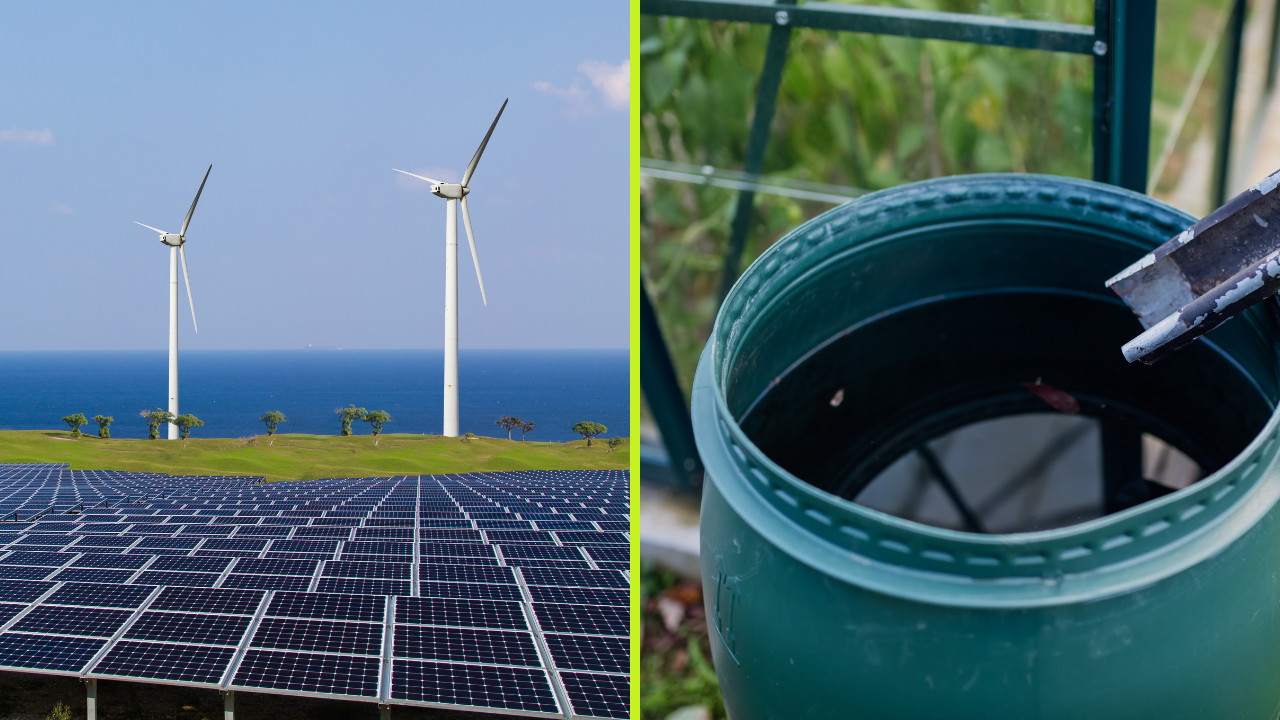
3. Renewable Energy & Water Conservation
Several floating accommodations rely on solar power, rainwater harvesting, and eco-friendly waste management systems to reduce their impact. Some even filter and purify water naturally for use in their facilities, reducing reliance on bottled water and minimizing pollution.

4. Direct Contribution to Local Communities
Floating eco-bungalows often employ local staff, source food from nearby farmers and fishermen, and partner with conservation organizations to ensure sustainable tourism benefits local economies. Many also offer guests cultural experiences, such as cooking classes, traditional fishing lessons, and homestays with local families.
Best Floating Eco Bungalows in Vietnam
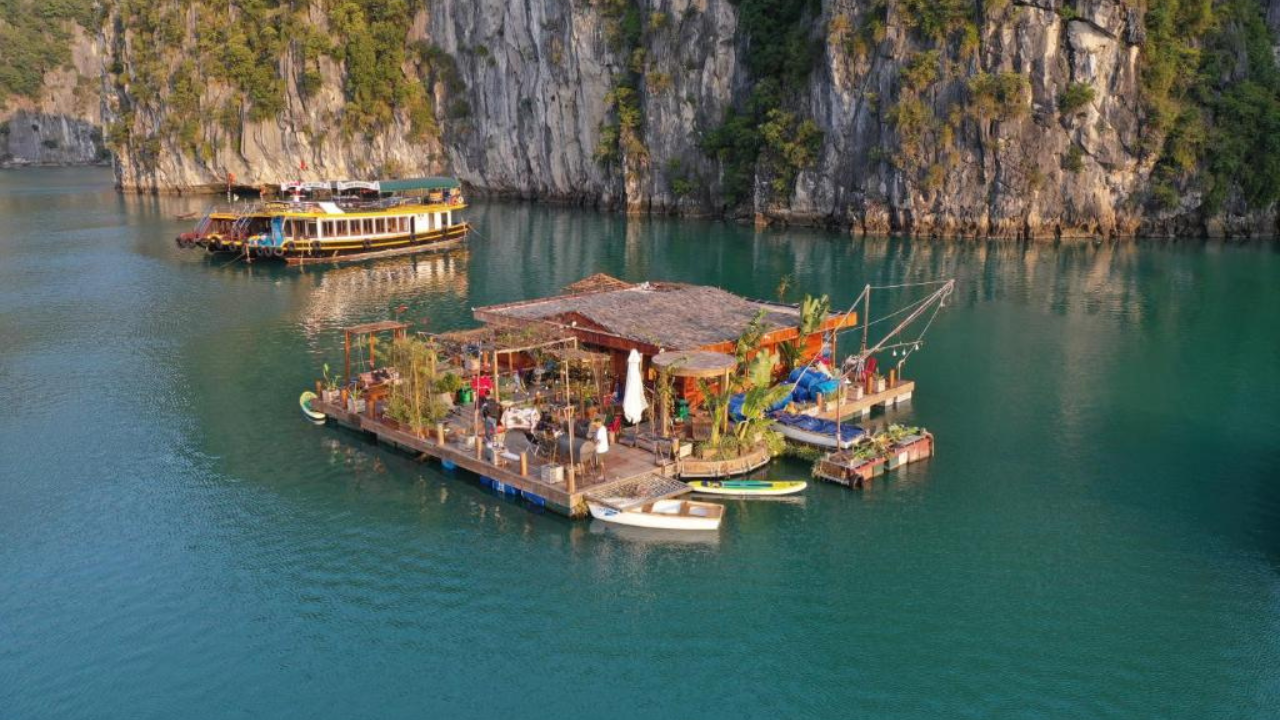
1. Lan Ha Floating Eco Lodge (Lan Ha Bay, Ha Long Bay)
Why It’s Sustainable:
- Runs on solar power and water filtration systems to minimize pollution.
- Partners with local fishermen to provide plastic-free seafood dining.
- Supports beach and waterway cleanup projects in Ha Long Bay.
- Uses bamboo and reclaimed wood for bungalow construction.
- Offers guided kayak tours to explore hidden caves and untouched beaches responsibly.
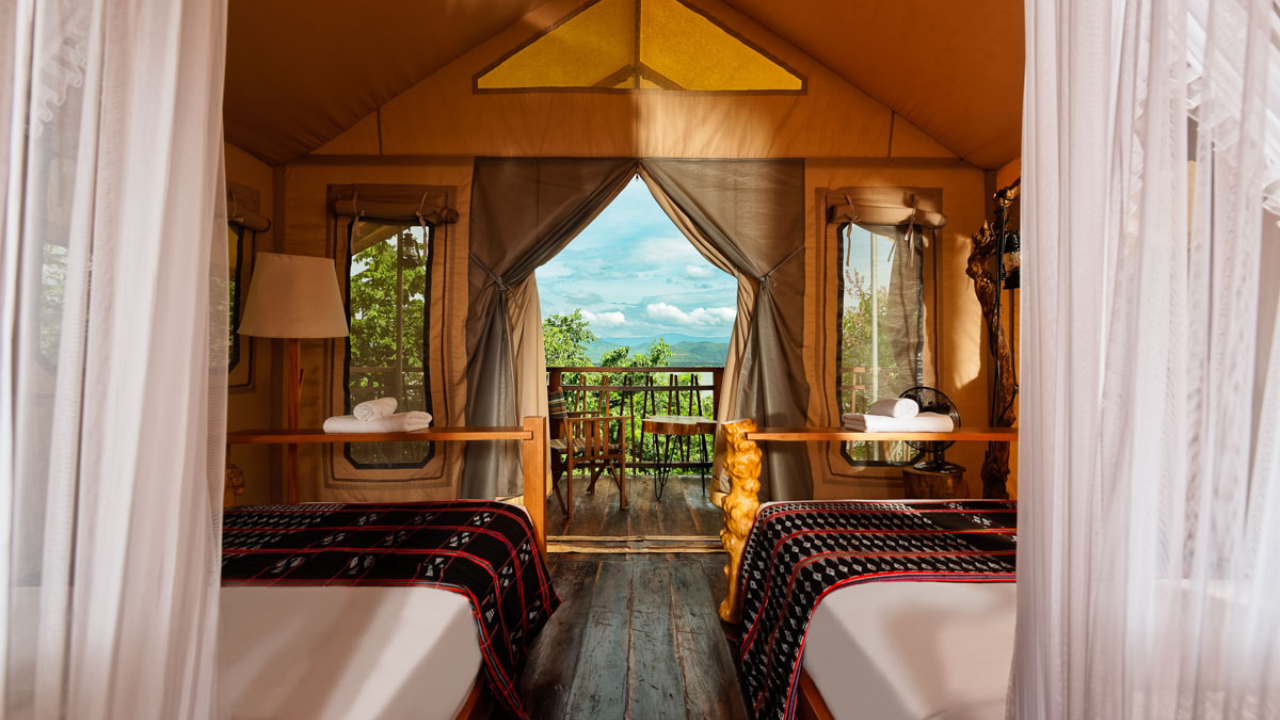
2. Lak Tented Camp (Lak Lake, Central Highlands)
Why It’s Sustainable:
- Built with zero-deforestation principles, using traditional techniques.
- Offers cultural immersion experiences with local ethnic communities, promoting heritage conservation.
- Implements rainwater collection and composting toilets.
- Supports reforestation projects around Lak Lake, restoring native tree species.
- Features farm-to-table dining with organic ingredients sourced from local farmers.
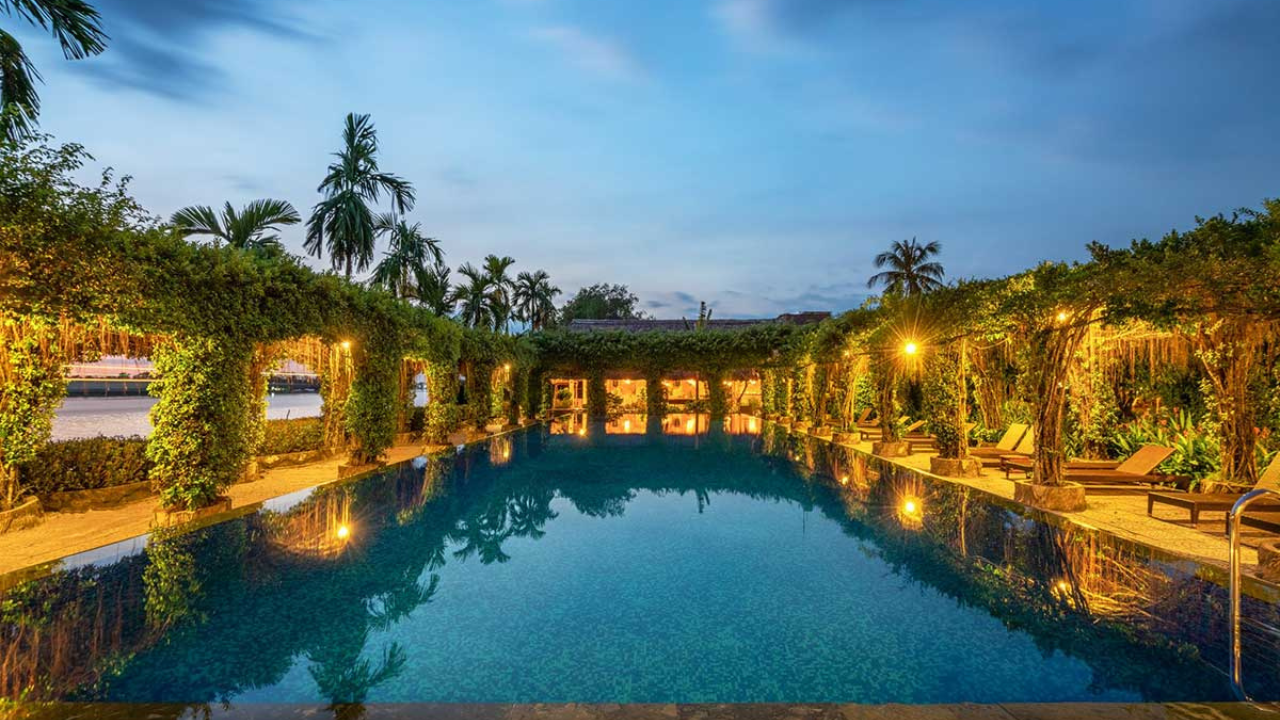
3. Mekong Lodge (Mekong Delta)
Why It’s Sustainable:
- Uses solar energy and natural ventilation to reduce carbon footprint.
- Supports local organic farms, offering farm-to-table dining.
- Provides bicycle rentals to reduce transportation emissions.
- Educates guests on Mekong Delta ecosystem conservation.
- Works with NGOs to restore wetlands and prevent soil erosion.
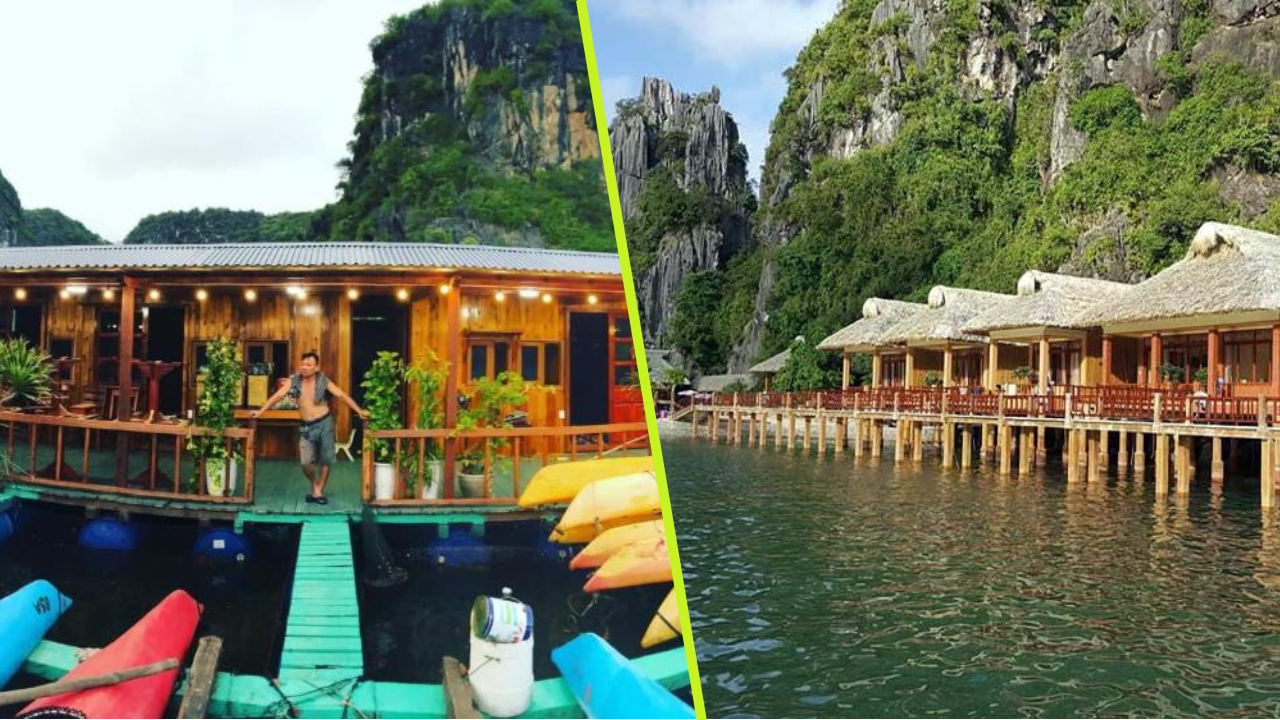
4. Cat Ba Eco Lodge Floating Bungalows (Cat Ba Island, Ha Long Bay)
Why It’s Sustainable:
- Runs on wind and solar energy, with minimal waste production.
- Hosts weekly ocean cleanups for guests and local volunteers.
- Uses filtered seawater for showers and daily operations.
- Employs and trains local communities in eco-tourism and conservation.
- Features guided eco-tours focused on mangrove reforestation and wildlife conservation.
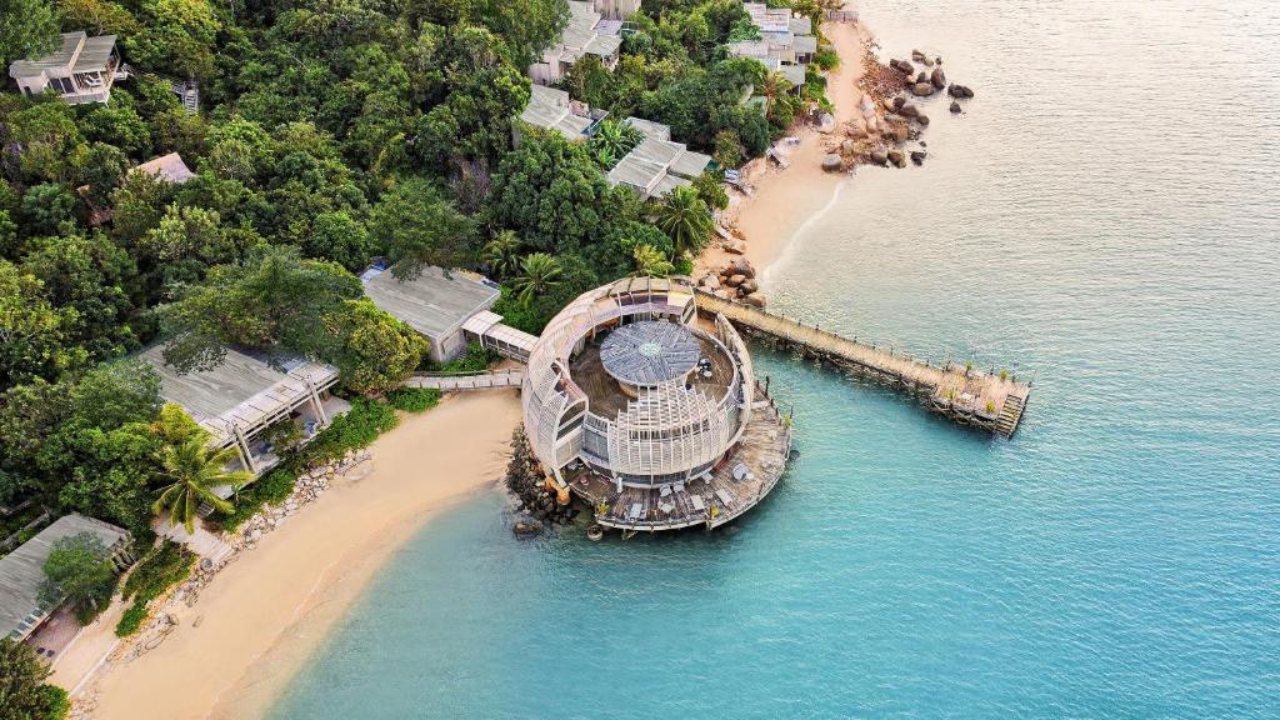
5. An Lam Retreats Floating Villas (Nha Trang Bay)
Why It’s Sustainable:
- Powered by renewable energy sources, including wind and solar.
- Implements plastic-free policies, providing bamboo straws and reusable bottles.
- Invests in marine conservation and coral reef restoration.
- Offers eco-friendly luxury without compromising on sustainability.
- Partners with local artisans to preserve traditional craftsmanship in architecture and design.
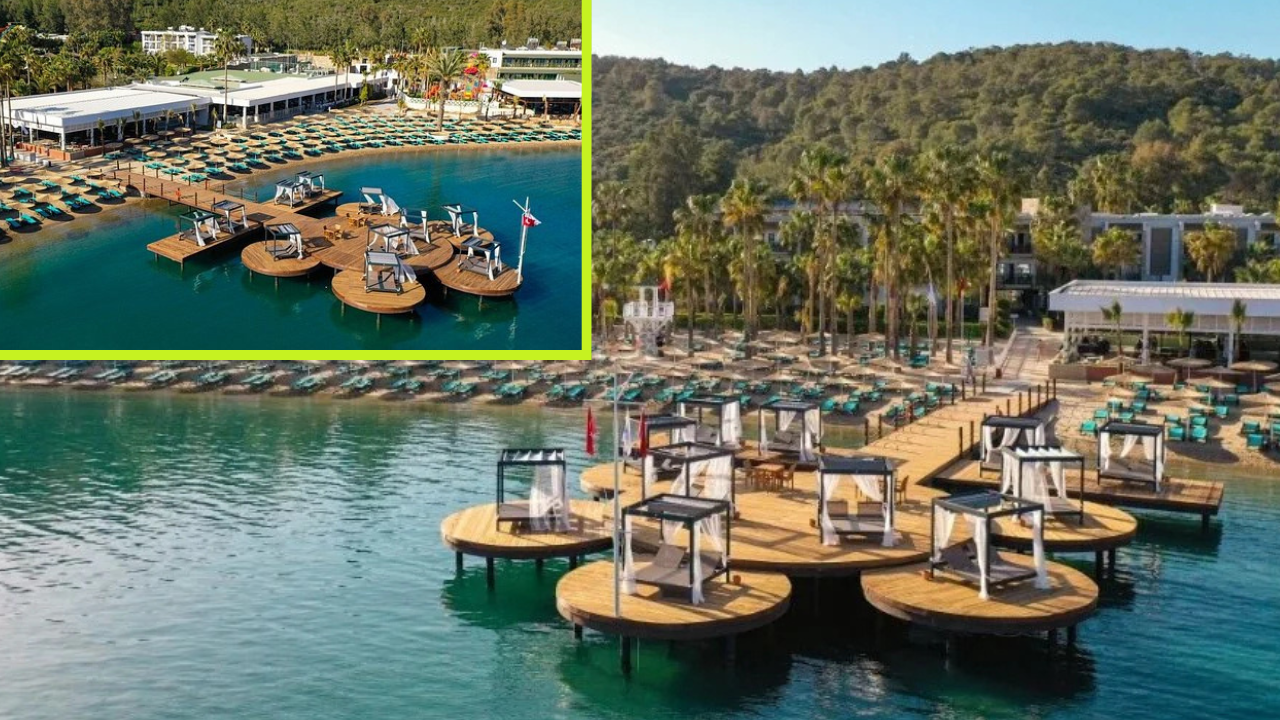
6. Green Bay Floating Resort (Quang Ninh Province, Ha Long Bay)
Why It’s Sustainable:
- Built entirely from sustainable timber and bamboo.
- Operates a zero-waste kitchen and plastic-free bar.
- Organizes kayak-based trash cleanups with guests.
- Supports mangrove reforestation projects to combat coastal erosion.
- Promotes eco-friendly diving and snorkeling excursions with conservation-focused guides.
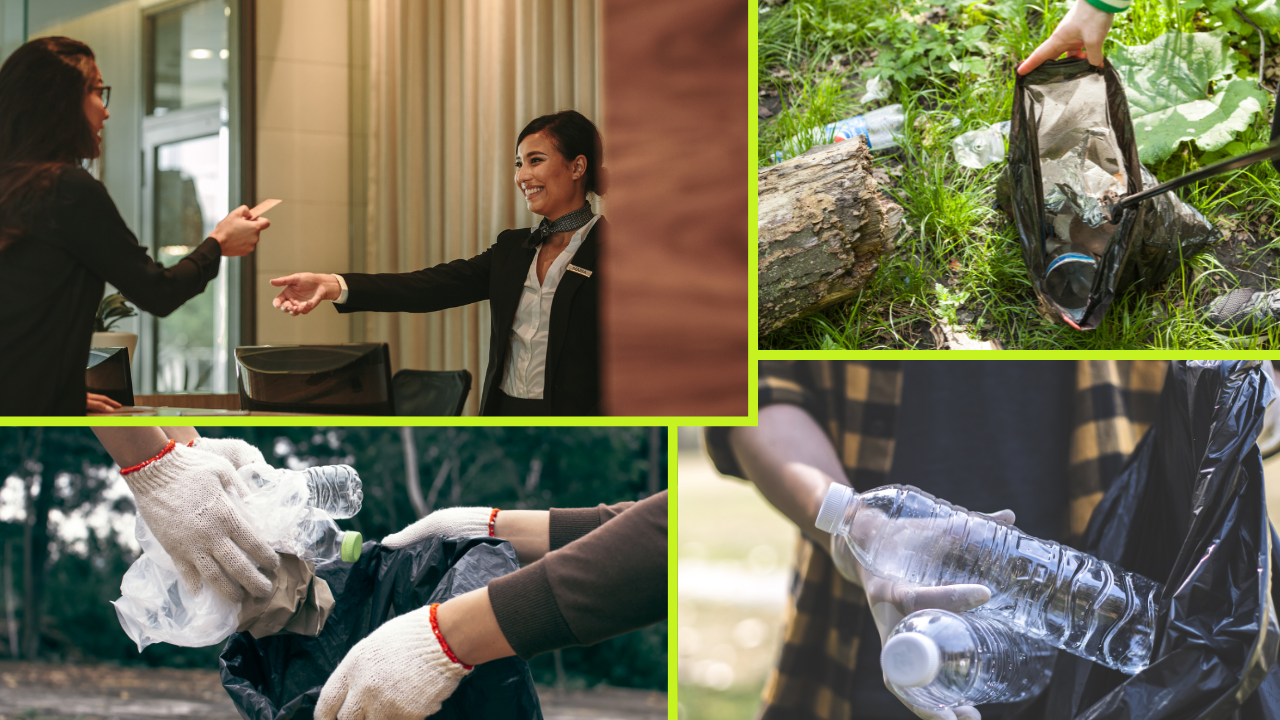
How Your Stay Helps Clean Up Plastic Waste
When you book a floating eco-bungalow through Impt.io, a portion of your stay funds plastic cleanup initiatives and marine conservation projects. Your contribution helps:
✅ Remove plastic waste from Ha Long Bay through community-led cleanups.
✅ Fund mangrove reforestation, which protects coastlines and absorbs carbon.
✅ Support recycling and upcycling programs in local fishing villages.
✅ Promote education programs on plastic-free tourism for local communities.
✅ Assist local entrepreneurs in developing sustainable alternatives to plastic-based products.
By choosing to stay in a sustainable floating bungalow, you’re directly supporting environmental efforts while enjoying one of Vietnam’s most unique travel experiences.
How to Travel Sustainably in Vietnam
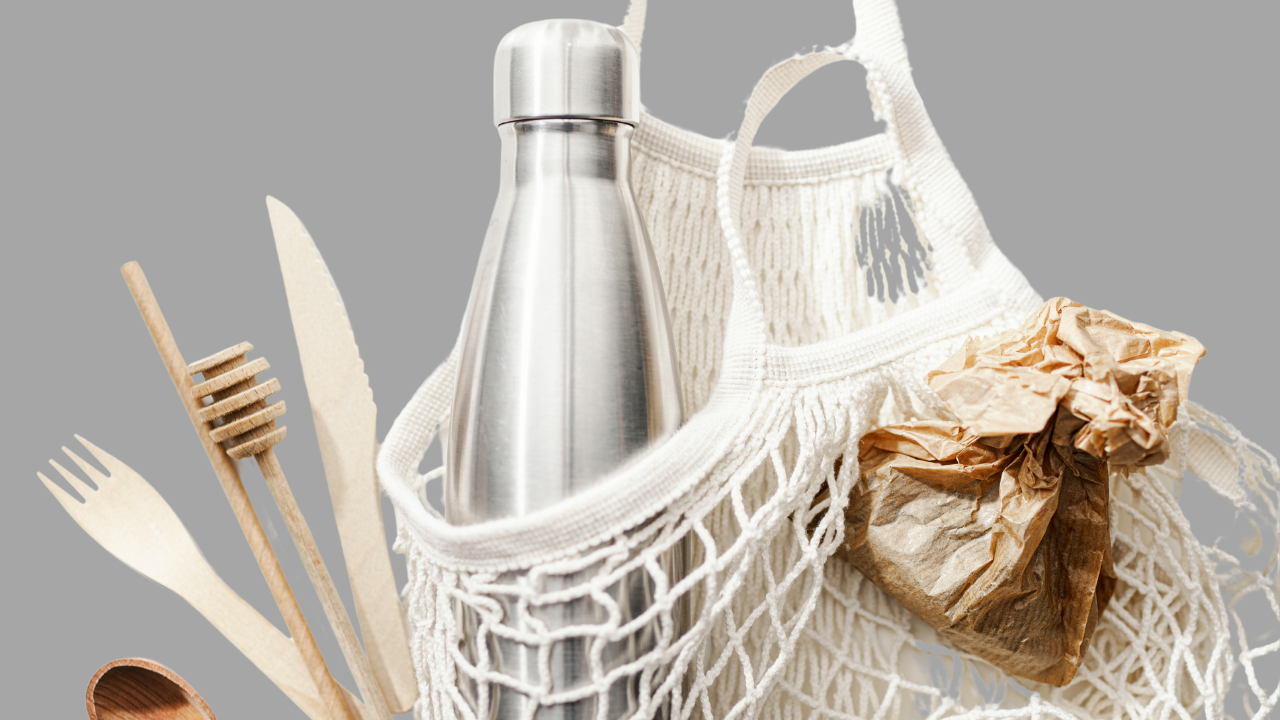
1. Opt for Plastic-Free Travel Gear
- Bring a reusable water bottle (filtered water is available at most eco-lodges).
- Use bamboo toothbrushes and compostable toiletries.
- Carry a reusable tote bag to avoid plastic waste when shopping.
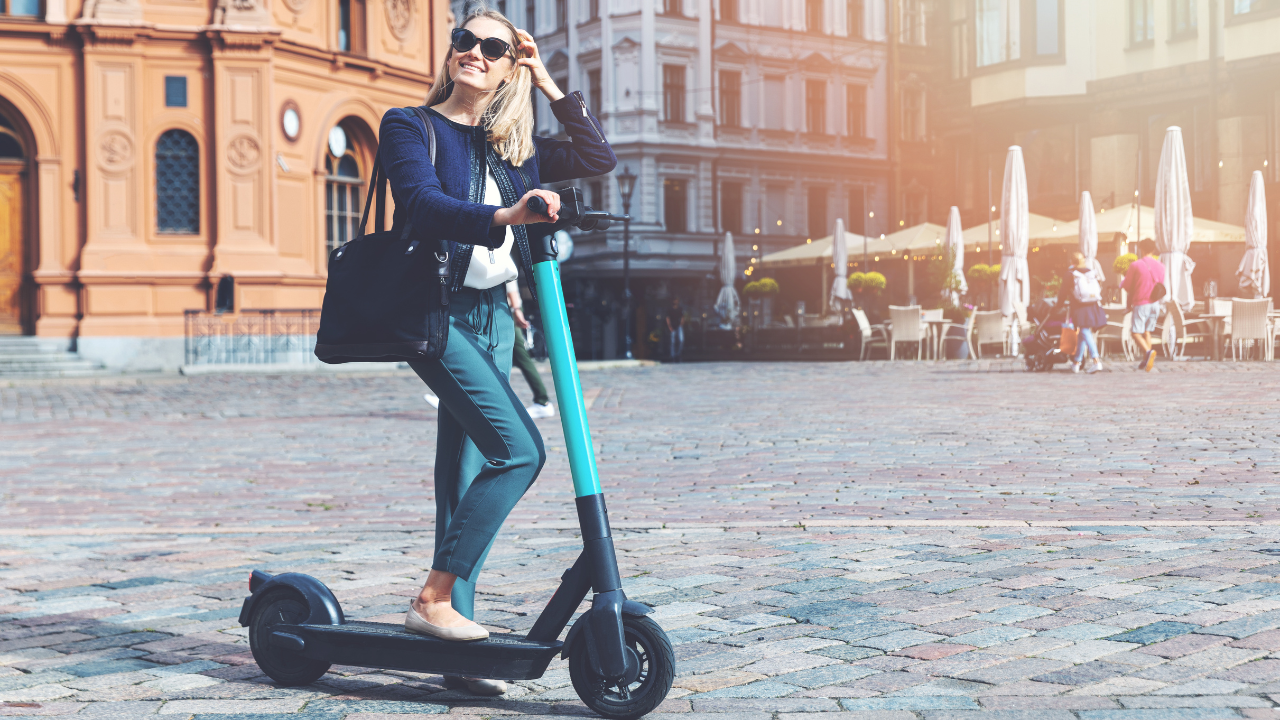
2. Choose Low-Impact Transportation
- Take trains and buses instead of domestic flights when possible.
- Use bicycles or electric scooters for short distances.
- Choose eco-friendly boat tours instead of motorized speedboats.

3. Support Local Sustainable Dining
- Eat at farm-to-table restaurants that source locally.
- Choose plant-based or sustainably sourced seafood.
- Avoid dining establishments that serve endangered species (e.g., shark fin soup).
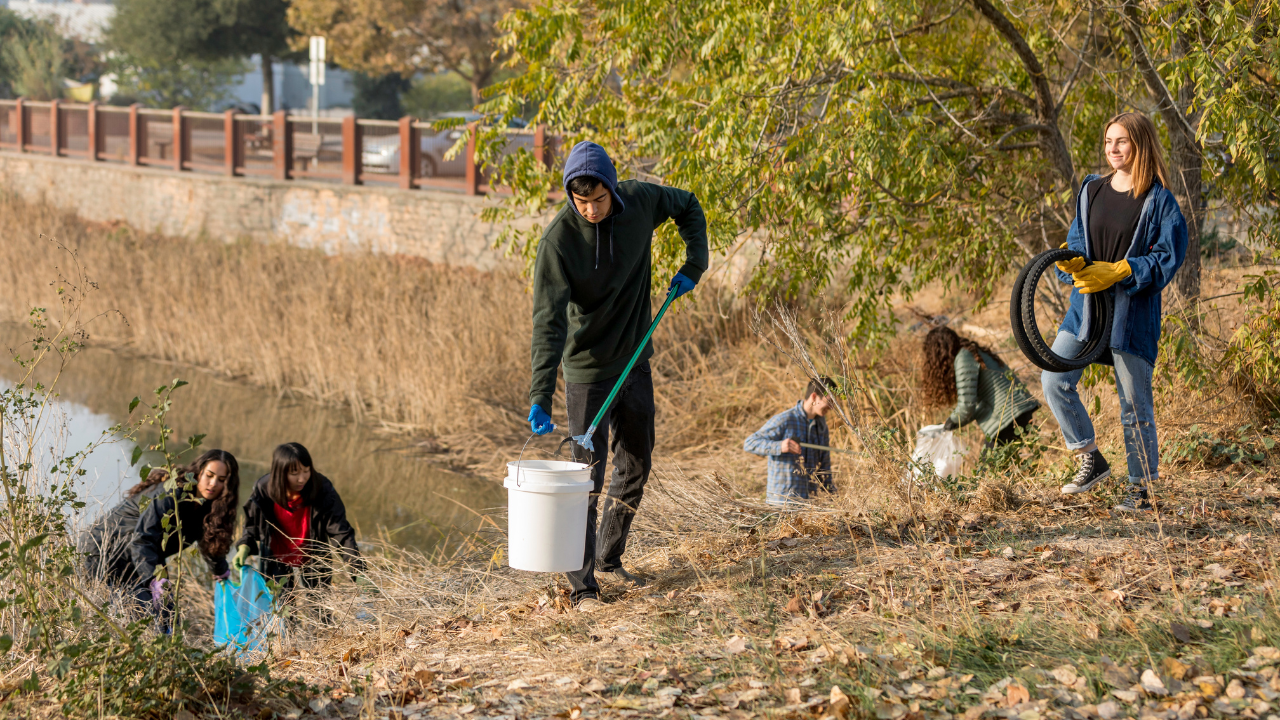
4. Participate in Community Cleanups
- Join kayak-based plastic cleanup tours in Ha Long Bay.
- Support local conservation groups working to restore mangrove forests.
- Book tours with operators that invest in environmental sustainability.
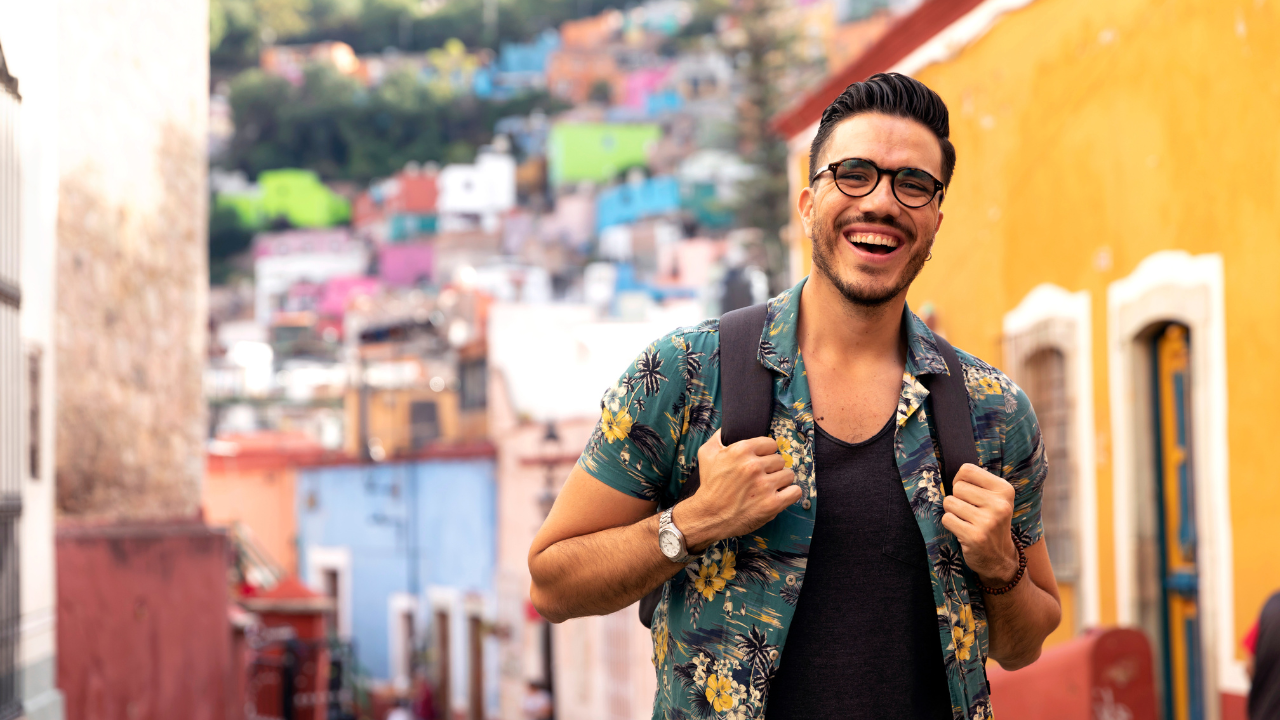
Conclusion
Sleeping in a floating eco bungalow is more than just a unique travel experience—it’s a way to support sustainable tourism, ocean conservation, and local communities in Vietnam. By choosing eco-friendly accommodations that prioritize renewable energy, waste reduction, and marine protection, travelers can help keep Vietnam’s waterways pristine for future generations.
🌿 Ready to drift into serenity while making a positive impact? Book your floating eco-stay through Impt.io and help clean up Vietnam’s coastlines today!









